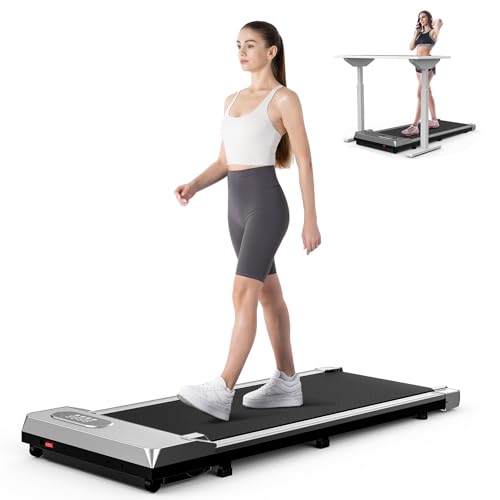The Treadmill Machine: An Educational Guide to Your Fitness Journey
The treadmill machine has become an indispensable tool in modern physical fitness routines. Whether one is a skilled athlete or a beginner attempting to get into shape, a treadmill provides a hassle-free and efficient method to achieve fitness objectives. This short article will explore the numerous elements of treadmill machines, their benefits, various types available, and standards for effective use.
Benefits of Using a Treadmill
Treadmills provide numerous physical and psychological health advantages that add to overall wellness. Some essential advantages consist of:
- Cardiovascular Health: Regular usage of a treadmill helps in enhancing heart health by enhancing the heart muscles and enhancing circulation.
- Weight reduction: By engaging in constant cardiovascular workouts, people can burn considerable calories, helping in weight-loss and management.
- Joint-Friendly Exercise: Treadmills offer a regulated environment that permits users to change speeds and slopes, making it easier on the joints than working on tough surface areas.
- Convenience: Treadmills are especially helpful for those who live in areas with negative weather, as they can be utilized inside your home year-round.
- Personalized Workouts: Many modern-day treadmills come equipped with programs and features that allow users to personalize their workouts for varying intensity levels.
Health Benefits Overview
| Advantage | Description |
|---|---|
| Cardiovascular Improvement | Reinforces the heart, enhancing general blood circulation and endurance. |
| Weight Management | Reliable calorie burning resulting in weight loss. |
| Injury Prevention | Minimized risk of injury due to adjustable surfaces and controlled environments. |
| Motivation and Consistency | Offers an indoor alternative that motivates routine workout no matter weather conditions. |
| Improved Mood | Regular workout contributes to the release of endorphins, enhancing mental wellness. |
Types of Treadmill Machines
While treadmills may seem straightforward, various types cater to various requirements and choices. Here are the primary classifications:
- Manual Treadmills: These need no power and are moved by the user's effort. Read Full Report use up less area and are quieter however can present a steeper learning curve for beginners.
- Electric or Motorized Treadmills: The most typical type, they include automated programs for speed and incline. They are usually more flexible but require electrical energy to operate.
- Folding Treadmills: Designed for those with restricted space, folding treadmills can be collapsed and kept away when not in use, making them ideal for small apartments.
- Slope Treadmills: These machines offer the capability to raise the slope, mimicing hill runs for a more reliable workout.
- Industrial Treadmills: Built for heavy usage, these machines are typically discovered in fitness centers and gym and include a variety of functions and resilience.
Comparison of Treadmill Types
| Type | Power Source | Best For | Space Considerations |
|---|---|---|---|
| Handbook | None | Beginners, budget-conscious users | Low |
| Electric | Plug-in | Varied intensity workouts | Medium to High |
| Folding | Plug-in | Limited space users | Low |
| Incline | Plug-in | Extreme cardio and strength | Medium to High |
| Commercial | Plug-in | Frequent gym usage | High |
Tips for Effective Treadmill Use
To make the most of the advantages of a treadmill regimen, here are numerous tips to consider:
- Warm-Up: Start every exercise with a 5-10 minute warm-up at a slow pace to prepare the body.
- Posture: Maintain an upright posture, keeping shoulders back and direct to prevent strain and injury.
- Interval Training: Incorporate various speeds throughout exercises (high-interval training) to enhance cardiovascular fitness and burn calories.
- Use Inclines: To even more improve exercises, include incline options to imitate hill running, which builds strength in the legs.
- Stay Hydrated: Keep a water bottle close by, guaranteeing to consume in the past, throughout, and after exercises to stay hydrated.
Suggested Treadmill Workouts
- Beginner's Walk: Start at a moderate pace for 20-30 minutes, gradually adding speed as comfort boosts.
- Hill Intervals: Alternate in between incline and flat surface areas, sprinting uphill for 1 minute followed by walking for 2 minutes.
- Long-Distance Run: Target a steady rate for a prolonged duration (40-60 minutes), focusing on endurance.
- Speed Training: Change speeds every minute, beginning from a light jog to short bursts of sprinting to enhance speed and cardiovascular health.
Frequently asked questions
Q1: How often should I use a treadmill for reliable results?
A1: It is normally advised to utilize a treadmill at least 3 times weekly for 30-60 minutes to see considerable results.
Q2: Can I reduce weight using a treadmill?
A2: Yes, with a combination of routine exercise, a well balanced diet, and part control, utilizing a treadmill can contribute greatly to weight-loss.
Q3: Do I need to warm-up before utilizing the treadmill?
A3: Yes, warming up is necessary to prepare your body, decrease the threat of injury, and enhance workout performance.
Q4: Is working on a treadmill as efficient as running outdoors?
A4: Both have advantages, but a treadmill permits controlled environments, avoiding weather-related disruptions, and might have less effect on the joints.
Q5: Can a treadmill assistance with bodybuilding?
A5: While mainly a cardiovascular tool, changing inclines can help engage and strengthen particular leg muscles.
Treadmill machines are flexible and can be an important part of a fitness journey. By comprehending the various types, advantages, and efficient use techniques, people can tap into the full capacity of this equipment. Whether aiming for improved cardio health, weight management, or enhanced mental well-being, a treadmill serves as a reputable companion on the roadway to physical fitness.

